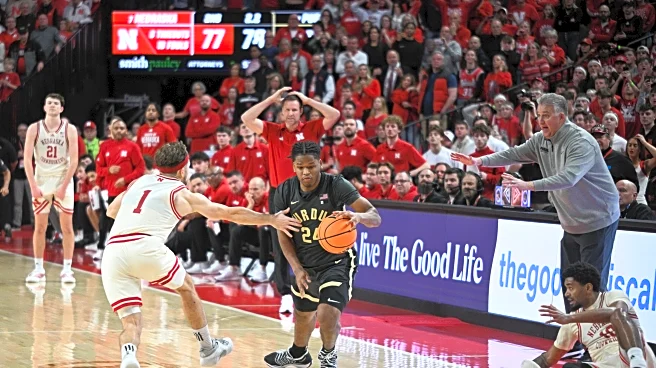What's Happening?
Bryan Cranston, known for his role in 'Breaking Bad,' initially expressed concerns over OpenAI's Sora 2 video generator, which had produced unsettling videos using his likeness without consent. Cranston contacted SAG-AFTRA, his union, to address the misuse
of performers' identities. OpenAI responded by strengthening its policies, requiring opt-in consent for the use of voice and likeness in AI-generated content. Cranston has since praised OpenAI for its improved guardrails and policy adjustments. The company has committed to sharing revenue with rightsholders who opt-in for character generation.
Why It's Important?
The issue highlights the growing concerns over AI's ability to replicate human likenesses without consent, raising ethical and legal questions about intellectual property rights. OpenAI's response sets a precedent for how tech companies might handle similar situations, balancing innovation with respect for creators' rights. This development is significant for the entertainment industry, as it navigates the implications of AI technology on performers' rights and compensation. The collaboration between OpenAI and talent agencies suggests a move towards more responsible AI usage in media.
What's Next?
OpenAI plans to continue refining its policies to ensure compliance with copyright laws and respect for performers' rights. The company supports the NO FAKES Act, which aims to prevent unauthorized AI-generated depictions of individuals. As AI technology evolves, ongoing dialogue between tech companies, performers, and legal entities will be crucial in establishing clear guidelines and protections. Stakeholders in the entertainment industry may push for more robust legislation to safeguard against misuse of AI-generated content.
Beyond the Headlines
The situation underscores the broader implications of AI in creative industries, where the line between innovation and exploitation can blur. Ethical considerations around consent and compensation for AI-generated likenesses are likely to become more prominent as technology advances. This case may influence future discussions on AI ethics, particularly in how AI can be used responsibly without infringing on individual rights.

















